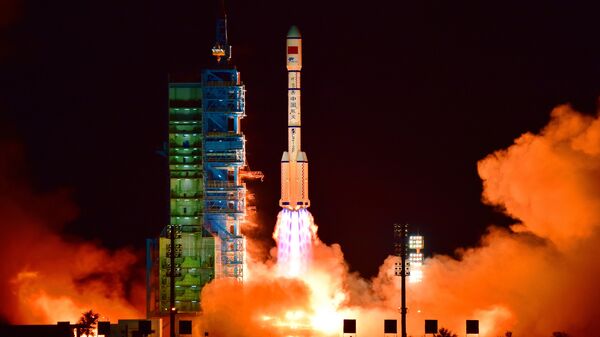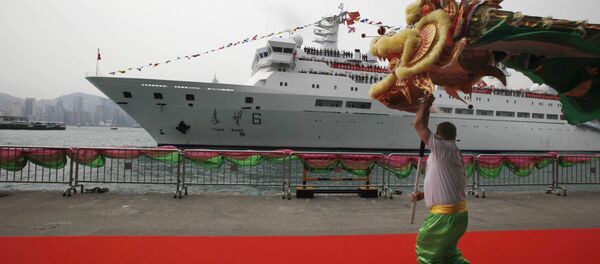“However, Tiangong-2 will allow Chinese astronauts to stay in orbit for 30 days, which is longer than ever before in the history of the Chinese space program,” Kashin told Sputnik.
The Tiangong-2, whose name means “Heavenly Palace,” will be used to test space technology and conduct medical and space experiments. According to the military expert, in the future, the launch of a third module is planned, in which a crew of 3 people will be able to stay in orbit for up to 40 days. The refueling technology of the orbiter is also planned to be worked out on this module.
Thus, upon the completion of tests on the heavy carrier rocket Long March-5, the future of the Chinese space program is likely to develop quite quickly.
The lack of a heavy launch vehicle is one of the main restrictions that does not allow the Chinese to begin construction on the station before the end of the decade.
Tiangong modules have a mass of about 8,500 kg. According to Kashin, these modules are too small for productive operation in the orbit and can be used mainly for to test various systems for future space stations.
The next basic element of the Chinese space station is expected to weigh 22 tons and the plant will consist of several more modules, the military expert said.
Taking into account that currently the Chinese space program is still using highly toxic heptyl rocket boosters, the cost of failure can be very high.
However, the new Chinese missiles, including the Long March 5, will not be so dangerous, which would be an additional guarantee to the well-established security system.
Due to the fact that the Chinese will have enough time to carry out a large number of experiments with Tiangong, any unforeseen situations in the orbit will reduced to a minimum, (the first module will be launched presumably in 2018) until construction begins on the new station.
It should be noted that to date, China has managed to implement its program, in general adhering to the originally established schedule, without any unforeseen accidents.
Thus, it is hoped that with the advent of a private Chinese space station, China will establish a permanent presence in space and will begin to experiment with long-term human presence in space which is required for flights to other planets.
It is clear that over time, major Asian countries such as China and India, with their economic growth, will have to take a leading position in space exploration.
According to Kashin, the rivalry between them will contribute to the progress of humanity, just like it did for the Soviet Union and the United States.




